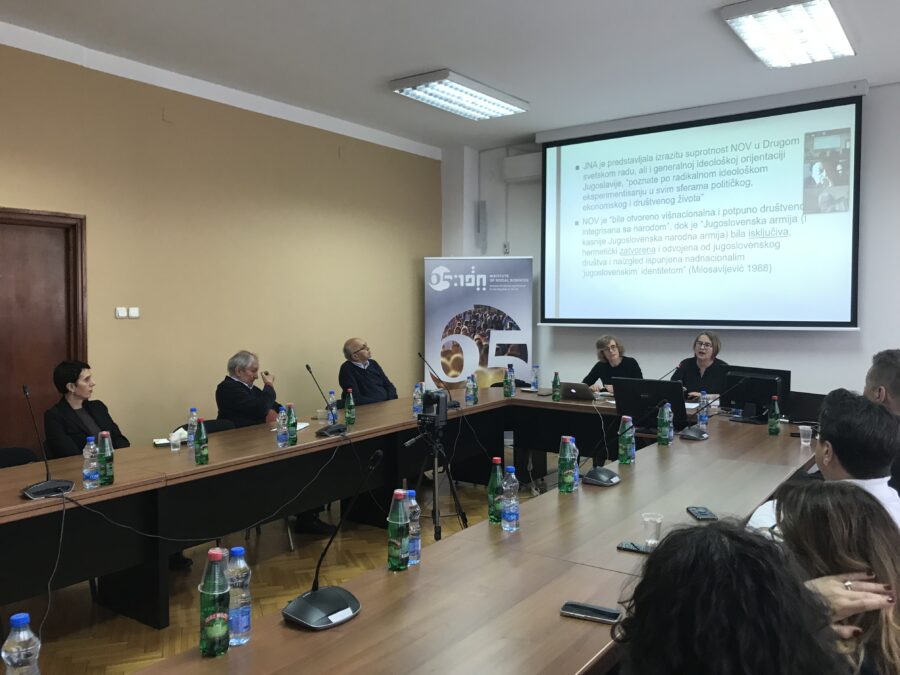In her lecture “Utopia in uniform? Understanding Yugoslavia through the JNA lens” Tanja Petrović talked about the specific experiences in the Yugoslav People’s Army (JNA) and how they can be connected with the main ideas of Yugoslav socialism.
Starting from her recently published book Utopia of the Uniform: Affective Afterlives of the Yugoslav People’s Army, Tanja Petrović first presented the anthropological approach to this topic. She stressed that in all societies the military is considered an institution characterized by hierarchy, coercion and – despite the new tendencies of recent decades – the dominance of men and masculinity. Therefore, military service, especially where it is mandatory, leaves a not insignificant mark on the life of every young man.
Based on the numerous experiences of former JNA soldiers, whose biographies Petrović collected and analysed, and above all contextualized within her research, she showed to what extent, despite hierarchies and factual differences among soldiers, the JNA represented an area dominated by solidarity and equality, while the question of ethnicity was secondary.
The main thesis of the lecture of the senior research fellow at the Institute for Culture and Memory Studies of the Scientific Research Centre of the Slovenian Academy of Sciences and Arts in Ljubljana was that a conservative institution by all parameters, such as the army/JNA, represented a space in which, thanks to the ritualized, repetitive form and protocol (or maybe even in spite of them) formed a supranational collective freed from religious, linguistic, class and other identity categories. In addition it was also a unique space where people whose life paths and biographies would otherwise probably never have crossed, met and connected for many years to come, if not for their whole lifetime.
As such a space, but also as a phenomenon, the JNA is, as in the conclusion Petrović pointed out, an illustration that a community and a collective never necessarily have to rest on the common interests of its members, as it is the case with communities connected on the ground of identity (ethnic, religious or similar). But that instead, there can be collectives that rest primarily on the quality of interpersonal relations, cooperation and responsibility of all its members to each other.
The lecture took place on 24 April, 2024 as part of the cycle Regional tea party “Yugoslavia”, organized by the Academic Network for Cooperation in Southeast Europe in collaboration with the Institute of Social Sciences.

